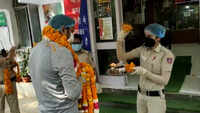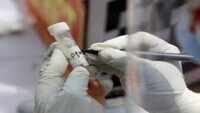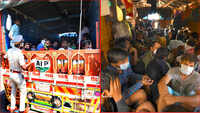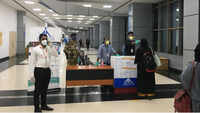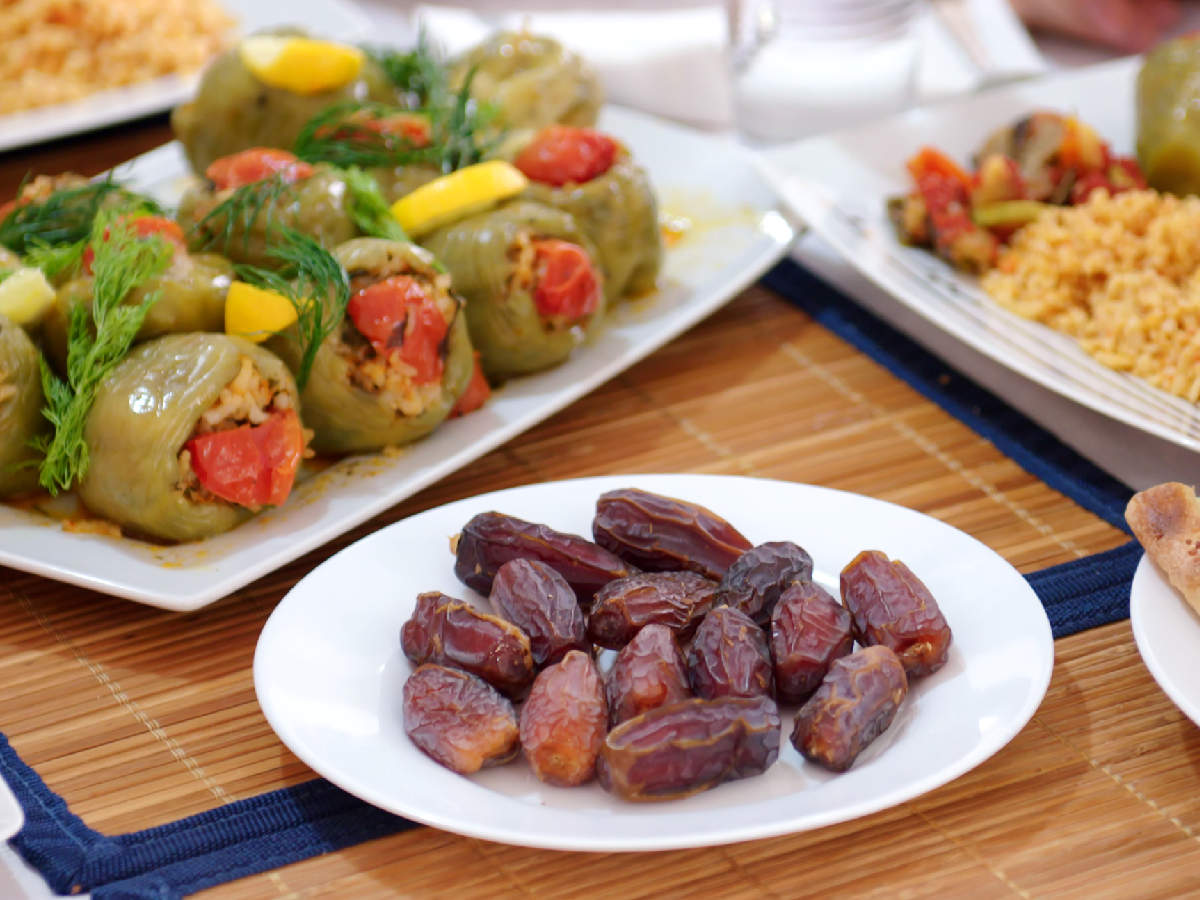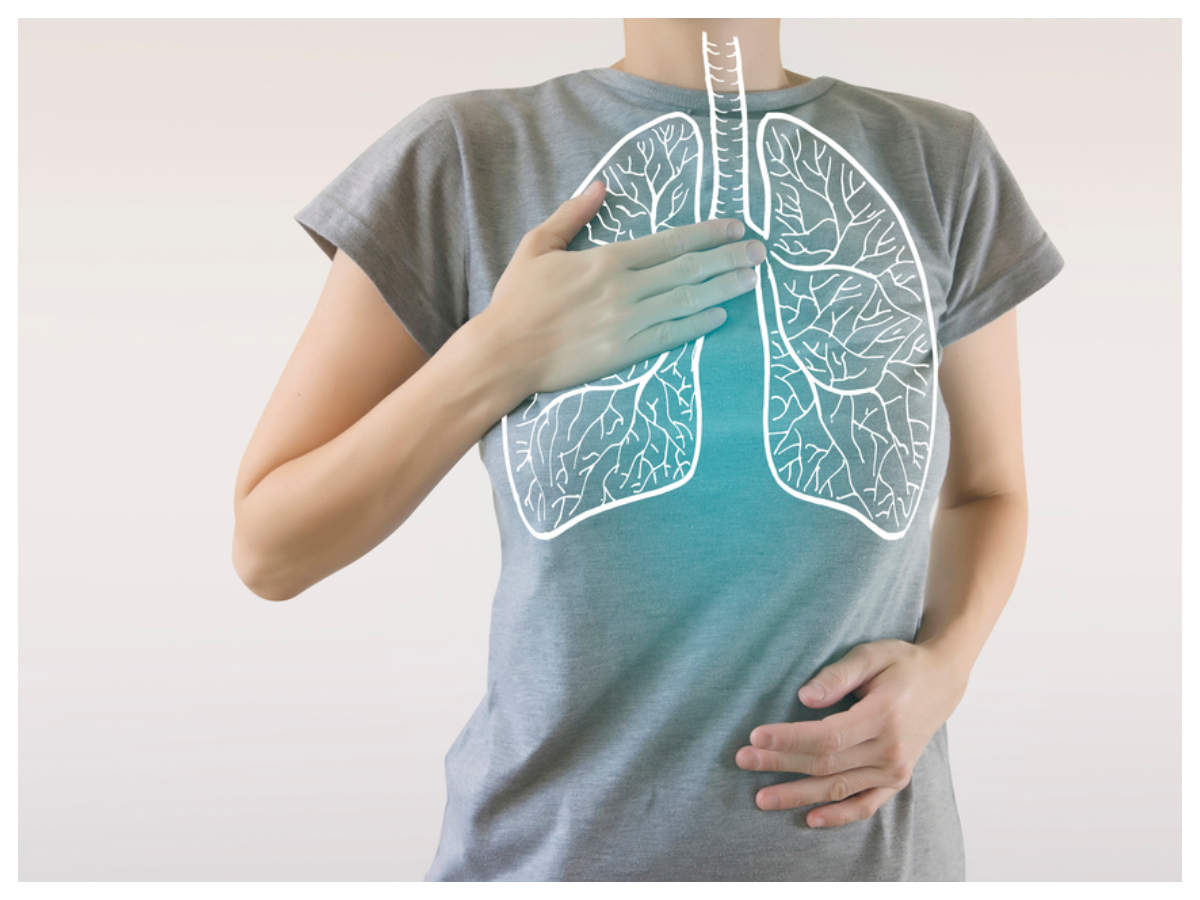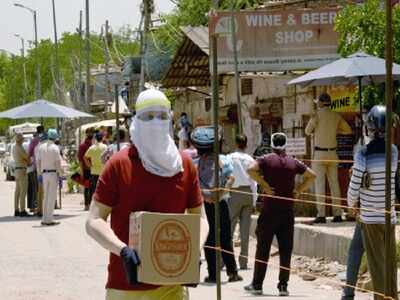
NEW DELHI: Over 4.75 lakh e-tokens have been issued in three days in the city to people wanting to buy liquor. This mechanism was launched once huge crowds started gathering outside booze shops, flouting the social distancing norm, when some of the vends opened on May 4 after over 40 days.
Though the excise department website crashed on Thursday due to heavy rush to book the tokens, it was later up and running. Liquor worth Rs 6.5 crore to Rs 7 crore is being sold daily nowadays, though only 200 government-run shops out of a total of 800 in the city have been allowed to operate.
Meanwhile, a message was sent from Delhi Police DCP (special branch) to all districts saying only shops with token system should operate and anyone without a token shouldn’t be allowed within 50 meters of the vends. However, the excise department said on Friday that police “misinterpreted” the original e-token order, and shops without the token system could also operate and everyone could buy liquor.
‘E-token holders to get preference’
Sandeep Mishra, deputy commissioner of the excise department, said no person without e-token should be denied the chance to buy liquor. “However, preference to those having e-tokens must be given by letting them stand in separate queues,” he added.
Customers having e-tokens are given specific time slot for buying alcohol so that they do not wait in queues outside the shops. They arrive at the shops a few minutes before the time indicated on the e-tokens and usually find the shop not crowded. It helps shops maintain social distancing needed to ensure that they do not turn into super spreaders.
The excise department has started a web link — qtoken.in— where a customer can select a shop according to his convenience and book a time slot. The customer will have to give his name, residential address, details of a valid identity card such as Aadhaar and preferred date and time slot to purchase the liquor. The token with a QR code will be sent on his phone. Usually only 50 tokens are issued per shop per hour to keep the number of customers in check. The customer having the token has a separate queue at the liquor stores. The liquor is sold to the customer on producing the I-card mentioned while booking the slot.
The 200 shops now operational are being run by different agencies of the state government like the Delhi Tourism and Transportation Development Corporation and Delhi State Industrial & Infrastructure Development Corporation.
The liquor sale started on Monday and on the opening day liquor worth Rs 4.5 crore was sold. The government then started collecting 70% corona cess on liquor from Tuesday. Since Tuesday, the liquor sale worth Rs 6.5 crore to Rs 7 crore started being sold.
The lockdown has taken a toll on the government’s revenue. In normal times, liquor sale generates around Rs 500 crore revenue each month.
Though the excise department website crashed on Thursday due to heavy rush to book the tokens, it was later up and running. Liquor worth Rs 6.5 crore to Rs 7 crore is being sold daily nowadays, though only 200 government-run shops out of a total of 800 in the city have been allowed to operate.
Meanwhile, a message was sent from Delhi Police DCP (special branch) to all districts saying only shops with token system should operate and anyone without a token shouldn’t be allowed within 50 meters of the vends. However, the excise department said on Friday that police “misinterpreted” the original e-token order, and shops without the token system could also operate and everyone could buy liquor.
‘E-token holders to get preference’
Sandeep Mishra, deputy commissioner of the excise department, said no person without e-token should be denied the chance to buy liquor. “However, preference to those having e-tokens must be given by letting them stand in separate queues,” he added.
Customers having e-tokens are given specific time slot for buying alcohol so that they do not wait in queues outside the shops. They arrive at the shops a few minutes before the time indicated on the e-tokens and usually find the shop not crowded. It helps shops maintain social distancing needed to ensure that they do not turn into super spreaders.
The excise department has started a web link — qtoken.in— where a customer can select a shop according to his convenience and book a time slot. The customer will have to give his name, residential address, details of a valid identity card such as Aadhaar and preferred date and time slot to purchase the liquor. The token with a QR code will be sent on his phone. Usually only 50 tokens are issued per shop per hour to keep the number of customers in check. The customer having the token has a separate queue at the liquor stores. The liquor is sold to the customer on producing the I-card mentioned while booking the slot.
The 200 shops now operational are being run by different agencies of the state government like the Delhi Tourism and Transportation Development Corporation and Delhi State Industrial & Infrastructure Development Corporation.
The liquor sale started on Monday and on the opening day liquor worth Rs 4.5 crore was sold. The government then started collecting 70% corona cess on liquor from Tuesday. Since Tuesday, the liquor sale worth Rs 6.5 crore to Rs 7 crore started being sold.
The lockdown has taken a toll on the government’s revenue. In normal times, liquor sale generates around Rs 500 crore revenue each month.
Get the app

